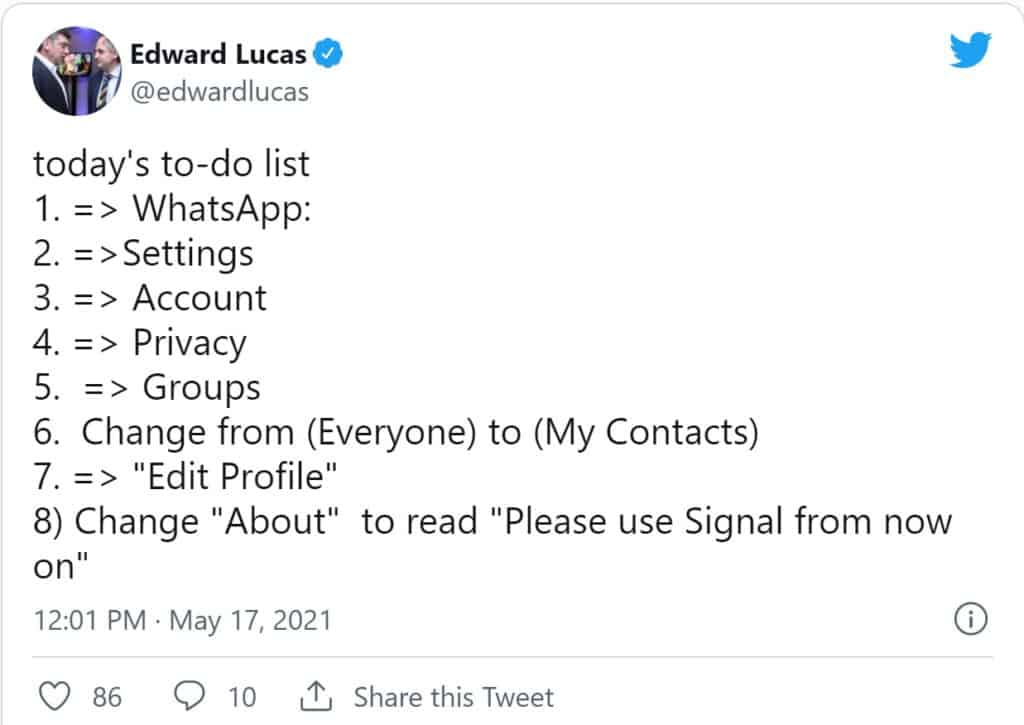Last Updated on
The latest privacy feature to hit Facebook-owned WhatsApp allows users to set their messages to automatically delete themselves after seven, 14, or 30 days. Continuing their ‘you should trust us’ marketing campaign, this feature comes after questionable privacy practices such as having ‘everyone’ enabled when starting new group chats, something Edward Lucas highlighted back in May:

WhatsApp extensions seem to be favored by the big green over a solid privacy policy, leading many to believe that WhatsApp scams its users. Yes, everything is black and white in their privacy statement, but companies that make their living on selling your information will do very little to spotlight inconsistencies in a privacy policy.
Currently, the general WhatsApp privacy policy FAQ does little to highlight the fine print, instead of focusing on their end-to-end message encryption and keeping conversations private. Great features on top of WhatsApp extensions such as auto-deleting messages, but what information are they using?
WhatsApps privacy policy also clearly avoids the elephant in the room, fluffing up the block of text to put off users reading it:
“WhatsApp must receive or collect some information to operate, provide, improve, understand, customize, support, and market our Services, including when you install, access, or use our Services.”

The truth is, information is being shared by WhatsApp to Facebook mostly when using the app for business practices. Although, IP addresses, user information, preferences, and information viewed are passed on, something that WhatsApps privacy policy glances over and has put the company through the WhatsApp scams rumor mill:
“The types of information we receive and collect depend on how you use our Services. We require certain information to deliver our Services and without this we will not be able to provide our Services to you. For example, you must provide your mobile phone number to create an account to use our Services.”
WhatsApp isn’t ad-based, so no revenue stream is coming in for cluttering the app with advertisements for that power bank your phone heard you tell the good lady about (Go into your Google/Apple account privacy setting to change this). Instead, it appears that WhatsApp leaves out the good bits on the FAQ which again leads people to believe WhatsApp scams are a thing when it comes to your information. Using a VPN is a great way to hide your IP address and your browsing history, here are some that we can recommend for all devices.



